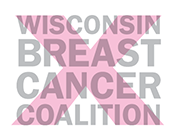 Amanda Walsh
Amanda Walsh
This January marked two years since I began breast cancer treatment. I vividly remember that cold, dark morning in early January 2022, when my husband and I drove to the hospital for my first surgery. I had spent the night before preparing as best as I could. Of course, it was impossible to truly prepare for all that was to come. There was so much I didn’t yet know.
What followed the rest of that January and into February was a gauntlet of painful news. I struggled to absorb each new piece of information and adjust my expectations accordingly. I had hoped to avoid chemo, but that initial surgery revealed that my cancer had spread into my lymph nodes, which meant chemo was on the table. I learned I’d need another surgery after I finished chemo. And I learned that the radiation I had hoped to avoid by choosing the surgery that I had was – you guessed it – definitely happening. I remember feeling like I was in constant free fall. My cancer was much more advanced than I had expected.
Now, two years out from when treatment began, I’m in a much different place. I still struggle with some ongoing effects of my treatment, but I am also able to live each day without those difficulties on the forefront. I’ve come a long way from that first winter, where my main focus was getting through each day, each piece of bad news, each challenge.
One thing I’m keenly aware of is how I am one of the “lucky” ones. I had access to excellent care, and my insurance covered treatment without question. But that should be the norm. No breast cancer patient should have to wonder if they’ll be able to access the care they deserve. They shouldn’t have to worry that they might not be able to afford the treatment they need.
This is why the work the Wisconsin Breast Cancer Coalition does resonates with me. They are doing amazing, critical work at the state and federal levels to ensure all breast cancer patients can access (and afford) the kind of care I received. The kind of change they aim for doesn’t happen overnight, and doesn’t happen at all without constant, tireless work.
As I head into the first February since treatment that I feel the most like myself, I plan to continue to support the WBCC, and I encourage you to think of ways you can do the same. Maybe it means taking action when asked to contact your legislators about state or federal policies. Or maybe it means volunteering your time to support the WBCC. It could even mean donating a small (or large!) amount each month toward the WBCC’s important work. It can look different for everyone – but everyone has an important role to play. As I think about what I want this year to look like, I know the WBCC will play a part for me. I hope it plays a part in your 2024 plans, too.
